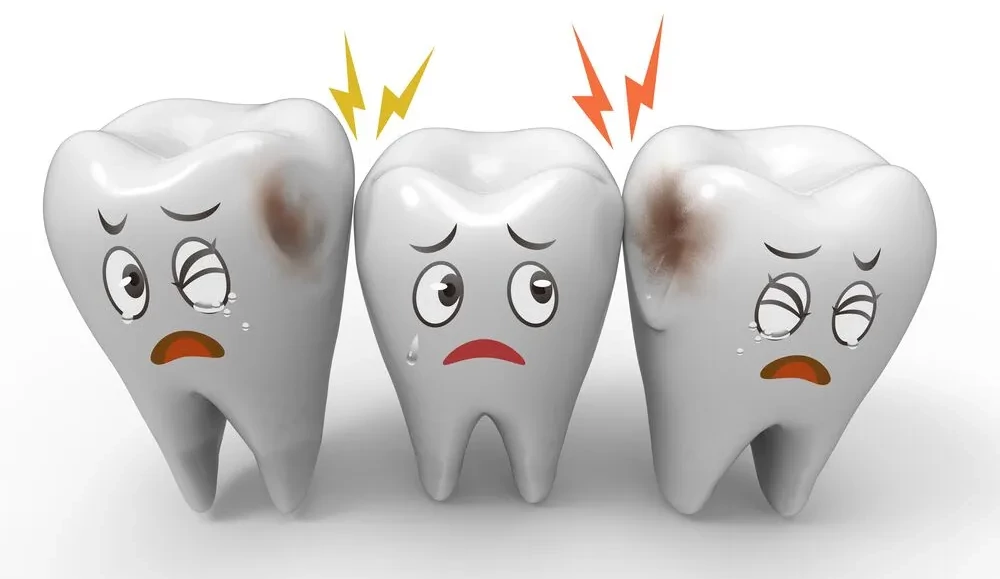
How to Prevent Cavities: Tips from Dental Professionals
Key Takeaways
- Cavities form when bacteria in your mouth feed on sugars and release acids that erode enamel.
- Preventing cavities requires a combination of daily oral hygiene, professional cleanings, and smart diet choices.
- Dental sealants and fluoride treatments offer additional protection, especially for children and high-risk adults.
- Regular checkups allow your dentist to detect early decay before it turns into a serious problem.
- Prevention is more affordable and less painful than restorative treatment.
Understanding Cavities: The Basics
Cavities, or dental caries, are permanent damage areas in the hard surface of your teeth that develop into small holes or openings. They are among the most common health problems worldwide, affecting people of all ages.
According to the Canadian Health Measures Survey, nearly 9% of Canadian children aged 6–11 and 96% of adults have experienced at least one cavity. The good news? Cavities are almost entirely preventable with consistent care and smart habits.
How Cavities Form
Cavity formation is not an overnight event but a gradual process:
- Bacterial Action:
Your mouth naturally contains bacteria. When they come into contact with sugars and starches from food or drinks, they form a sticky film called plaque. - Plaque and Tartar Buildup:
If plaque isn’t removed through brushing and flossing, it hardens into tartar, which traps more bacteria along the gumline. - Acid Attack:
Bacteria feed on leftover carbohydrates and release acid that gradually dissolves the enamel, the tooth’s protective layer. - Demineralization:
Continuous acid exposure strips enamel of essential minerals such as calcium and phosphate. White spots — early signs of decay — may appear. - Cavity Formation:
Eventually, enamel breaks down, forming a hole. Without treatment, decay can spread to the dentin and pulp, causing pain and infection.
Common Causes of Cavities
Cavities develop due to a combination of biological and behavioural factors.
| Cause | How It Contributes to Cavities |
|---|---|
| Bacteria | Bacteria such as Streptococcus mutans and Lactobacillus thrive on sugars, releasing acids that erode enamel. |
| Sugary & Starchy Foods | Frequent consumption of sweets, soda, and refined carbs provides fuel for acid-producing bacteria. |
| Poor Oral Hygiene | Infrequent brushing or flossing can lead to plaque and tartar buildup. |
| Dry Mouth (Xerostomia) | Reduced saliva limits the mouth’s ability to neutralize acids and remineralize teeth. |
| Frequent Snacking | Constant eating keeps acid levels high, giving teeth little time to recover. |

Why Preventive Dental Care Matters
Preventive care isn’t just about avoiding cavities — it’s about protecting your long-term oral health and reducing the need for costly restorative procedures.
Long-Term Benefits of Preventive Care
- Cost Savings: Preventive visits are far less expensive than crowns, root canals, or implants.
- Comfort & Confidence: A healthy smile means less pain, sensitivity, and embarrassment.
- Tooth Preservation: Preventive measures protect your natural teeth and minimize the need for invasive dental work later in life.
Daily Oral Hygiene Practices
1. Brushing Twice a Day
Use a soft-bristle toothbrush and fluoride toothpaste. Brush for at least 2 minutes, making sure to clean all surfaces — including the gumline and the back molars.
2. Flossing Daily
Floss removes plaque and food particles between teeth where brushes can’t reach. Neglecting this step leaves one-third of tooth surfaces uncleaned.
3. Mouthwash
Use an antimicrobial or fluoride mouthwash once daily to reduce bacteria and strengthen enamel. Avoid alcohol-based rinses, as they may cause dryness.
4. Replace Your Toothbrush
Swap your toothbrush every 3–4 months — or sooner if bristles fray — to maintain effective cleaning.
Smart Nutrition for Stronger Teeth
Your diet plays a significant role in cavity prevention.
Do:
- Eat calcium-rich foods like cheese, milk, and yogurt to strengthen enamel.
- Choose crunchy fruits and vegetables (apples, carrots, celery) that stimulate saliva production.
- Drink fluoridated water, which helps remineralize enamel.
Avoid:
- Frequent consumption of sugary drinks such as soda, juice, and energy drinks.
- Sticky snacks, like candy or dried fruit, cling to teeth.
- Late-night snacking, especially on carbs, occurs when saliva production is lowest.
Professional Preventive Treatments

| Prevention Method | At-Home Care | Professional Dental Care |
|---|---|---|
| Brushing & Flossing | Daily brushing and flossing maintain the cleanliness of the surfaces. | Reinforced during professional cleanings to remove stubborn plaque. |
| Fluoride Application | Use fluoride toothpaste and mouthwash. | Dentists apply concentrated fluoride varnish or gel to strengthen enamel. |
| Dental Sealants | Not available for home application. | Thin, protective coatings are applied to molars to prevent bacterial buildup. |
| Diet & Hydration | Limit sugars and drink plenty of water. | Dentists can provide personalized dietary advice. |
| Checkups | Self-monitor for sensitivity or staining. | Routine exams identify early decay, gum disease, or enamel erosion. |
Dental Sealants and Fluoride Treatments
Sealants:
Sealants are thin plastic coatings applied to the chewing surfaces of back teeth (molars and premolars). These areas have deep grooves that trap food and bacteria. Sealants seal these pits, preventing decay. They are especially recommended for children once their permanent molars erupt.
Fluoride Treatments:
Professional fluoride treatments — available as gels, foams, or varnishes — strengthen enamel and reverse early decay. Regular fluoride exposure is essential for both children and adults, particularly those with dry mouth or frequent cavities.
Dr. Goli Ariafar, DDS, notes:
“Preventive dentistry is about consistency. Brushing and flossing form the foundation, but professional care — like sealants and fluoride treatments — offers an additional layer of defence that at-home routines can’t match.”
Common Myths About Cavities — Debunked
Myth 1: Sugar-free drinks don’t cause cavities.
Even sugar-free sodas and energy drinks contain acids that erode enamel.
Myth 2: Only children get cavities.
Adults and seniors are equally at risk, especially with gum recession and dry mouth caused by medications.
Myth 3: If there’s no pain, there’s no cavity.
Early cavities are often painless. Regular exams catch them before they progress.
Myth 4: Hard brushing cleans better.
Brushing too hard wears away enamel and irritates gums. Use gentle, circular motions instead.
The Role of Regular Dental Checkups
Routine dental visits — ideally every six months — are the cornerstone of cavity prevention.
Benefits of Regular Checkups:
- Early Detection: Dentists identify tiny cavities or enamel weakness before symptoms appear.
- Professional Cleaning: Removes plaque and tartar that home brushing can’t reach.
- Tailored Advice: Your dentist can recommend specific toothpaste, rinses, or dietary adjustments.
Dr. Rob Eisen, DDS, emphasizes:
“Most dental problems start small and painless. With routine visits, we can intervene early, preserve your natural teeth, and help you maintain a healthy, confident smile.”
When to Seek Immediate Dental Care
Schedule an appointment if you experience:
- Tooth sensitivity to hot, cold, or sweet foods.
- Persistent toothache or pain when chewing.
- Visible holes, dark spots, or rough enamel surfaces.
- Swelling or bad taste in the mouth, indicating possible infection.

Simple Lifestyle Changes to Prevent Cavities
- Drink water after every meal to rinse away food particles.
- Chew sugar-free gum to increase saliva flow.
- Limit alcohol and caffeine, as they can dry out your mouth.
- Avoid smoking or vaping — both reduce saliva and contribute to gum disease.
Protect Your Smile for Life
Cavity prevention starts with everyday habits — brushing, flossing, and eating wisely — but it’s completed through professional care and consistency. Combining both ensures that your teeth remain strong, healthy, and cavity-free for years to come.
Your smile is an investment — protect it today. Book your next dental cleaning and cavity checkup with Skymark Smile Centre, where our experienced dentists, Dr. Goli Ariafar, DDS, and Dr. Rob Eisen, DDS, are committed to helping you maintain lifelong oral health.
Frequently Asked Questions About Cavity Prevention
What’s the best way to prevent cavities at home?
The most effective way to prevent cavities is to brush twice a day with fluoride toothpaste, floss daily, and limit sugary or acidic foods and drinks. Rinsing with fluoride mouthwash and drinking plenty of water also help neutralize acids and wash away food particles.
How often should I visit my dentist for cavity prevention?
Most dental professionals recommend visiting your dentist every six months for a cleaning and checkup. However, if you’re prone to cavities, dry mouth, or gum disease, your dentist may suggest more frequent visits.
Do dental sealants really work?
Yes. Dental sealants provide a thin protective coating on the chewing surfaces of molars, sealing out bacteria and food debris. According to the Canadian Dental Association, sealants can reduce the risk of decay in molars by up to 80%.
Are fluoride treatments safe for adults?
Absolutely. Fluoride isn’t just for kids — it helps remineralize enamel and prevent decay in adults too, especially those with gum recession or dry mouth caused by medications. Your dentist can recommend the right fluoride treatment for your needs.
Can diet really affect my risk of getting cavities?
Yes. Frequent snacking, sugary drinks, and sticky foods provide constant fuel for acid-producing bacteria. Choosing calcium-rich foods, fresh fruits, and vegetables — and drinking fluoridated water — can strengthen enamel and lower your risk.
How do I know if I already have a cavity?
Early cavities may not cause pain, but you might notice sensitivity to sweet, hot, or cold foods, visible dark spots, or rough enamel. The only reliable way to detect cavities early is through regular dental checkups and X-rays.
Can cavities heal on their own?
Once a cavity forms a hole in your enamel, it cannot heal naturally. However, early enamel demineralization (white spots) can be reversed through fluoride treatments, improved oral hygiene, and dietary changes.
What’s the difference between plaque and tartar?
Plaque is a soft, sticky film of bacteria that forms on teeth. If not removed daily, it hardens into tartar, which can only be removed by a dental professional. Both contribute to cavity formation and gum disease.
Are sugar-free drinks safe for my teeth?
Not necessarily. While sugar-free drinks don’t feed bacteria, they’re often acidic and can erode enamel over time. It’s best to limit them and rinse your mouth with water after consuming
What should I do if I think I have a cavity?
If you suspect a cavity, book a dental appointment as soon as possible. Early treatment — such as a small filling — prevents the decay from spreading and saves you from more invasive procedures later on.

